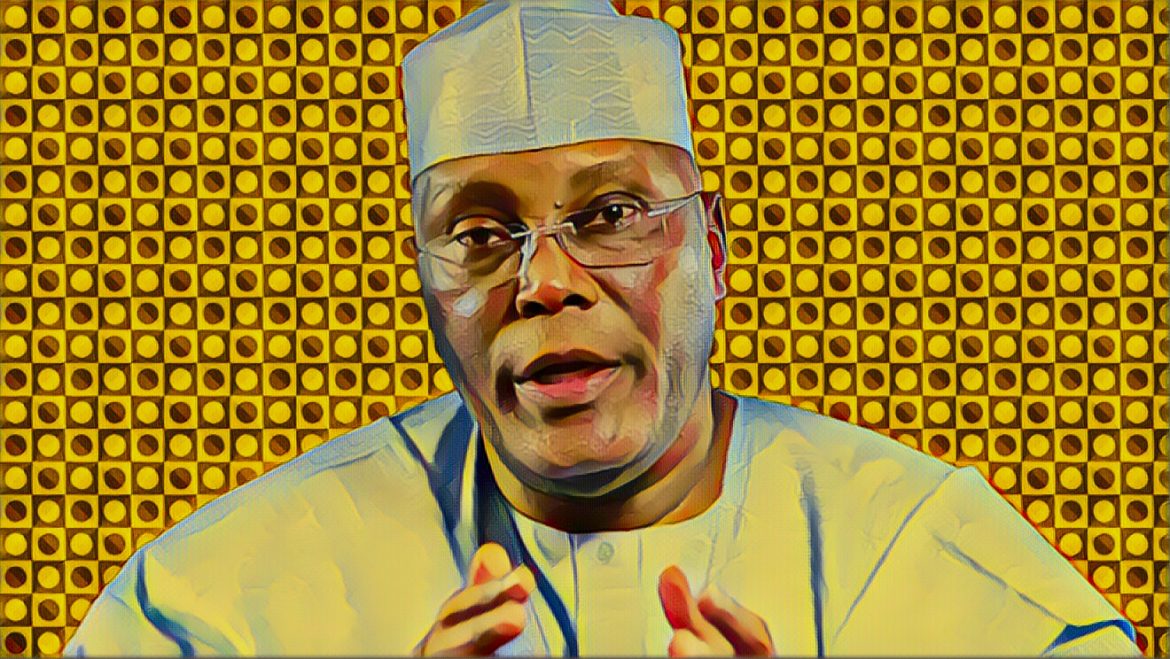In a scathing critique, former Vice President Alhaji Atiku Abubakar has once more vocalized his disapproval of President Bola Tinubu’s governance, accusing him of leading Nigerians into a dire state of poverty, hunger, and hardship. Atiku alleges that these conditions are a deliberate strategy by the president to weaken the populace, stripping them of their dignity.
In a press statement released through his Special Assistant on Public Communication, Phrank Shaibu, Atiku, who was the Peoples Democratic Party (PDP)’s flagbearer in the previous election, criticized the “shambolic policies” of the Tinubu-led administration for exacerbating the plight of Nigerians, with no apparent measures to alleviate the situation. He likened President Tinubu’s leadership to that of a “quack doctor” ineffectually attempting to cure a grave illness, thereby hastening the patient’s demise rather than providing relief.
Atiku condemned Tinubu’s tendency to attribute the nation’s economic woes to his predecessor and the opposition, suggesting that Tinubu’s failure to acknowledge his party’s contribution to the current state of affairs and his ineffective policies are the real catalysts for nationwide protests.
Highlighting the economic downturn under President Tinubu’s watch, Atiku pointed to an unprecedented high in poverty levels, with food inflation soaring to 33 percent. This, he argues, will inevitably lead to an increase in suicide rates, crime, and the number of children unable to attend school.
The criticism follows a pattern of concern voiced by numerous entities, including prominent cultural and professional groups such as the Sultan of Sokoto, Catholic bishops, Ohanaeze Ndigbo, the Arewa Consultative Forum, Afenifere, and the Nigerian Bar Association, among others. The private sector has also expressed unease over the uncertain business climate fostered by the current administration, citing the erratic exchange rate and policy inconsistencies that have led to the closure of approximately 10 million small and micro-scale businesses.
Amid the economic turbulence, protests have erupted in various Nigerian cities, including Kano, Osun, and Niger, driven by escalating hunger and insecurity.
Atiku remarked on the drastic changes in the affordability of basic food items, noting that staples such as garri and beans, once considered affordable for the poor, have become prohibitively expensive. He cited the alarming price hikes in essential food items and the use of what were traditionally animal feeds by desperate Nigerians as staples, underscoring the severity of the current economic hardship.
Referencing a report by the Federal Neuropsychiatric Hospital, Lagos, Atiku highlighted a 100 percent surge in psychiatric patient admissions in December, indicating a significant mental health crisis exacerbated by economic conditions. He also mentioned a distressing incident of a banker’s suicide due to unbearable economic hardship, emphasizing the widespread despair among Nigerians.
Atiku criticized Tinubu’s economic strategies, including the abrupt removal of petrol subsidies and the flotation of the currency, which, despite promises of relief, have led to further financial strain on the populace. He accused Tinubu’s administration of mismanaging funds intended for the needy and failing to deliver on transportation cost reduction promises.
In his analysis, Atiku argues that Tinubu’s economic policies are not only ineffective but are contributing to the impoverishment of Nigerians. He calls into question the president’s competence in economic matters, suggesting that Tinubu’s narrow experience with Lagos’ economy has ill-prepared him for national leadership. Atiku asserts that many of Tinubu’s cabinet appointments were misguided, prioritizing loyalty over capability, thus exacerbating Nigeria’s challenges.
As Nigeria faces its “worst fiscal crisis,” Atiku criticizes Tinubu for expanding the federal cabinet to an unprecedented size, thereby increasing governmental expenditure at a time of economic contraction. He describes Tinubu’s actions as out of touch with the reality of Nigerians’ suffering, noting even Tinubu’s supporters have begun to voice their discontent.
Concluding, Atiku accuses President Tinubu of lacking a clear understanding of the national economy and security, suggesting his reliance on international financial institutions and adherence to ineffective policies have only deepened Nigeria’s economic woes. Atiku’s critique paints a grim picture of Nigeria’s current predicament under President Tinubu’s leadership, calling for a reevaluation of the administration’s approach to governance.


